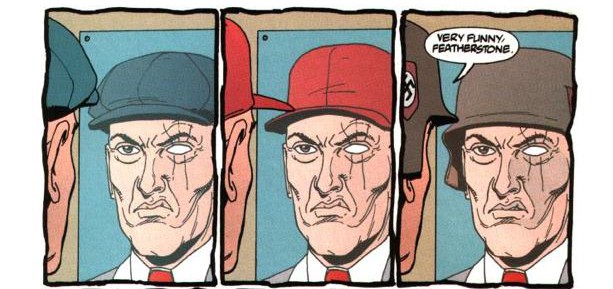In reverse order.
#3 Kentaro Miura’s Berserk
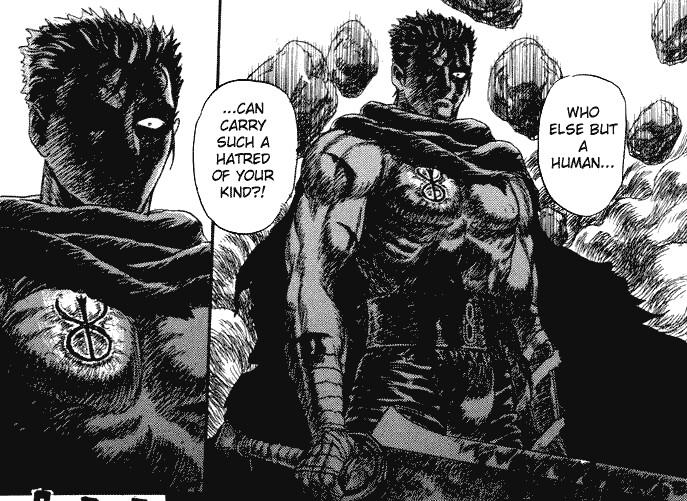
Miura’s fantasy manga series began in 1988, and in 31 years, there have been 40 volumes. There have been periods of complete silence from the creator for many years, and we have no idea when the series will end or how many more volumes there are.
What is the series about? I wrote about the first 6 volumes once upon a time, in Rolling Stone magazine. 10 years ago, to be precise, when the number of volumes released were 28. It has been a maddening wait, rendered more so by my tendency to wait a few volumes before reading the whole series again from the beginning. I even sold my whole collection of the Berserk books, at a stunning profit, may I add, because the books were out of print for quite a while. They are now being reissued in deluxe leatherbound three-in-one volumes, and of course I am buying them again. And reading them again three at a time.
#3 George RR Martin’s A Song of Ice and Fire
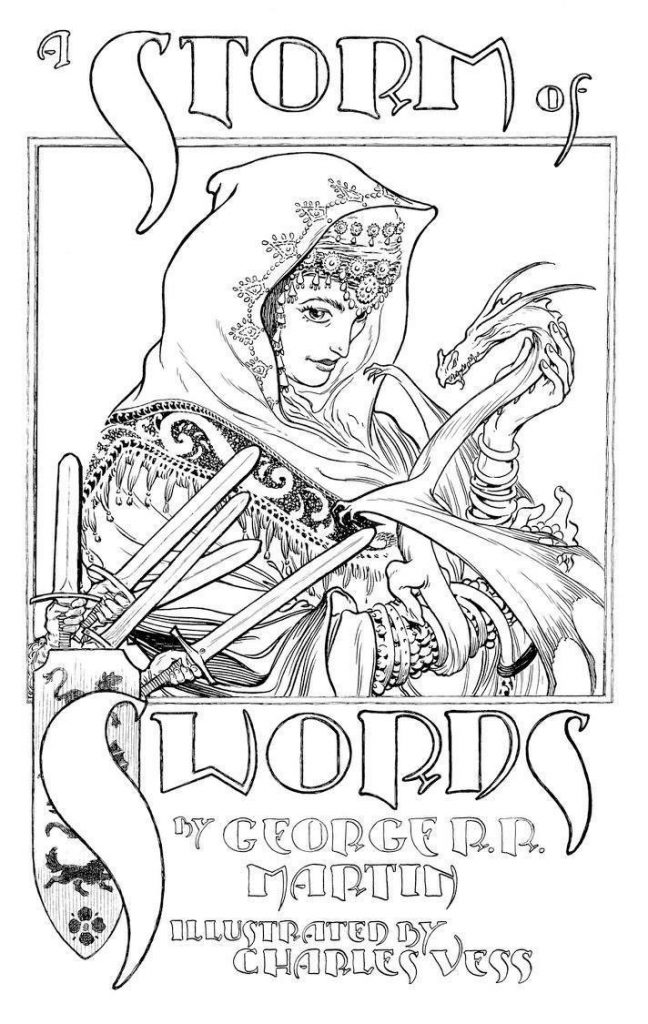
When talking about ASoIaF, I feel like a guy that comes late to a party, proceeds to get drunk, and can’t stop yelling what a great party it is, how it’s his favorite party of all time, the best party ever. I wasn’t too hot on the books when I read Game of Thrones before it was a blip on the radar of mainstream popular culture. In my defence, I had been thoroughly underwhelmed by the likes of Stephen R Donaldson, Robert Jordan, and other writers of the genre recommended to me by Tolkien enthusiasts. It was an easy conclusion to reach, that this medieval fantasy was no different than those other series, flailing to reach that vaunted position in our cultural consciousness that Rings had attained.
Ten years later, when I read the five books in a month, after binging on the first three seasons of the TV show, I wanted to slap myself hard for missing out on the books for so long.
The naive sweet summer child in me actually thought that Winds of Winter would be out by 2015. It took about 2 years more before I attained the Zen of Ice and Fire, that fuck-this-all attitude towards knowing what comes next in the books, with the understanding that there is a chance that I may actually die before the books end. Somewhere in the back of my brain, there is the occasional vein of desperate longing that throbs every time someone on Reddit talks about GRRM’s cheerful demeanor towards his writing. It’s fine. It’s going to be fine. The book will be out when it will be out.
*Insert quiet sobbing here*
#1 Robert Caro’s The Years of Lyndon B Johnson
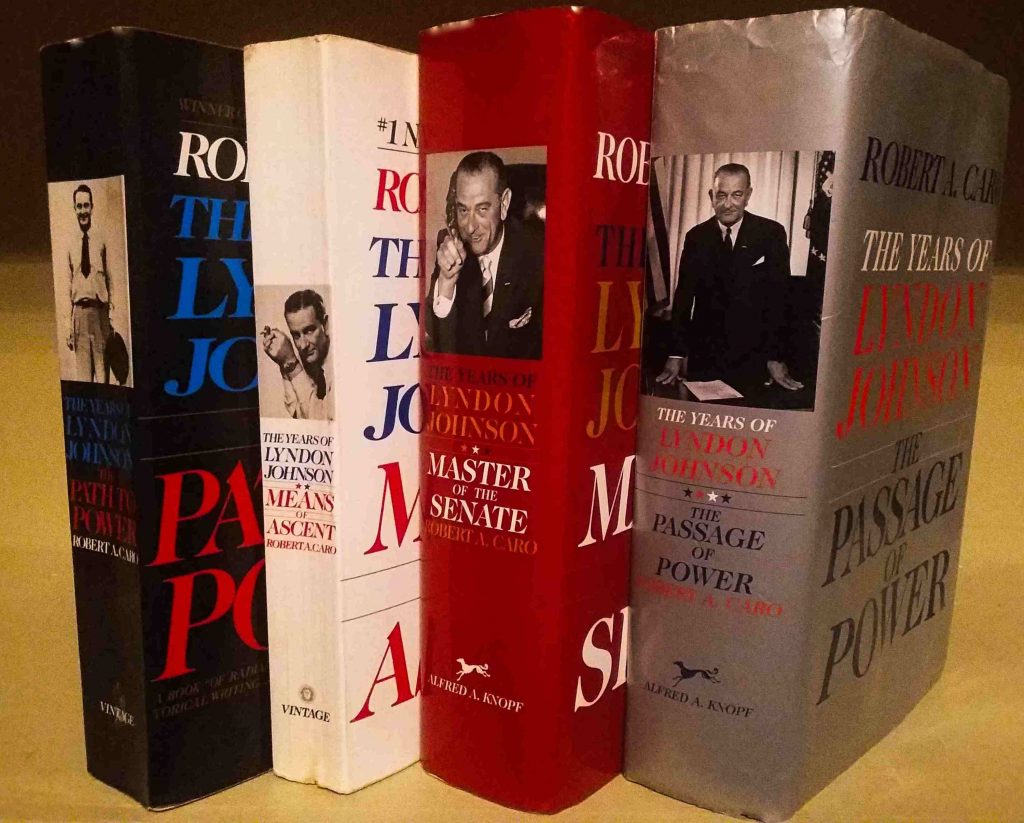
Read my lips: this series of books, ostensibly a biography of the US President Lyndon B Johnson, is a history of Texas and the USA, and American politics in the early twentieth century, and possibly the most insanely readable work of non-fiction ever published.
Caro is a journalist who took seven years to write a book on Robert Moses, somebody you wouldn’t know unless you lived in New York in the middle of the century. Moses was a power broker, somebody who worked behind the scenes of city politics, and his contribution to the world is New York as we know it today, the Parks, the Expressways, the beaches, the infrastructure of the city. Caro won the Pulitzer for The Power Broker, and then took on the task of writing about the President who accidentally got his job because his predecessor was assassinated. He began writing the book in 1974, a year after Johnson’s death. Four books have been out so far, the last published in 2012, each more gripping than the previous one. Never have I understood politics or the importance of government more than when I read Caro’s books. There has not been any other work of non-fiction that has moved me to tears. I never thought I would wince at the twists and turns of history as I have when reading of Johnson’s white-knuckle attempts to change his own fate, and that of the nation. I could probably write giant essays and thought experiments about my own complicated feelings for Mr Johnson, but that is a post for a different time.
Caro is 83 this year, and is still hard at work on the fifth and last book, which covers the actual presidency of Johnson, spanning the bulk of the 1960s. He just released a short book called Working, which is a bit of a peek at his process of research, writing, and interviewing. The book is around 200 pages, and most of it is ground previously covered in interviews and articles. I finished reading it today, and I am not embarrassed to say it made me tear up. It is not just a book about process and regimen, but a rare case of the writer insinuating himself into the work that has side-stepped the writer’s ego by a stunning degree.
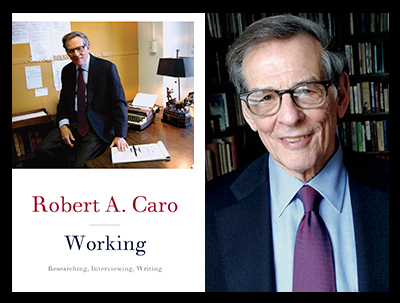
He talks about meeting Robert Moses (not an easy task, since the man had refused out of hand to cooperate with the writing of the book) and understanding what power truly meant, to see what this ruthless visionary saw when he stared outside the window of his mansion. He goes on at length about the fortuitous meetings and decisions that led to his single volume on Johnson expanding to three and then five volumes, how apocrypha gave way to facts and numbers, and how a flawed, larger-than-life President became an unbelievably complex human being.
But most wonderfully, Caro goes into detail about the mechanics of his writing. How he uses rhythm to make every word convey force and power; his use of mood and place, some of which he got by living for years in the areas he wrote about. How he managed to unpack decades-old dynamics between friends and family of Johnson in the course of multiple interviews, forging friendships over the years. At no point does any of it appear disrespectful, or manipulative. Caro’s motivation behind his writing is not to demean or elevate the subjects at hand, it is to understand and to make us understand the concept of power.
There is evil and injustice that can be caused by political power, but there is also great good. It seems to me sometimes that people have forgotten this. They’ve forgotten, for example, what Franklin Roosevelt did: how he transformed people’s lives. How he gave hope to people. Now people talk in vague terms about government programs and infrastructure, but they’ve forgotten the women of the Hill Country and how electricity changed their lives. They’ve forgotten that when Robert Moses got the Triborough Bridge built in New York, that was infrastructure. To provide enough concrete for its roadways and immense anchorages, cement factories that had been closed by the Depression had to be reopened in a dozen states; to make steel for its girders, fifty separate steel mills had to be fired up. And that one bridge created thousands of jobs: 31,000,000 man hours of work, done in twenty states, went into it. We certainly see how government can work to your detriment today, but people have forgotten what government can do for you. They’ve forgotten the potential of government, the power of government, to transform people’s lives for the better.
Robert Caro – Working
Needless to say, I can’t wait for the final book in the series to be out. After which, I hope Mr Caro will get around to writing the more full-fledged memoir that he talks about in Working. One can only hope and dream, I suppose.
